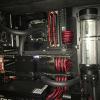Acer XB280HK G-SYNC Review
-
Topics
-
ID0 ·
Posted in Networking0 -
eviohh ·
Posted in Troubleshooting2 -
5
-
IhateAMDDRIVERS ·
Posted in Troubleshooting2 -
SashaSanguine ·
Posted in General Discussion6 -
9
-
Redsin ·
Posted in Graphics Cards3 -
BTSHalfLifeAndGmodFan2003 ·
Posted in Graphics Cards12 -
1
-
3
-
-
play_circle_filled

Latest From ShortCircuit:
The World's Fastest CPU (Technically...) - Intel i9-14900KS


.jpg.5cc14cacf0bfa9d58de316927a37ec08.jpg)













Create an account or sign in to comment
You need to be a member in order to leave a comment
Create an account
Sign up for a new account in our community. It's easy!
Register a new accountSign in
Already have an account? Sign in here.
Sign In Now